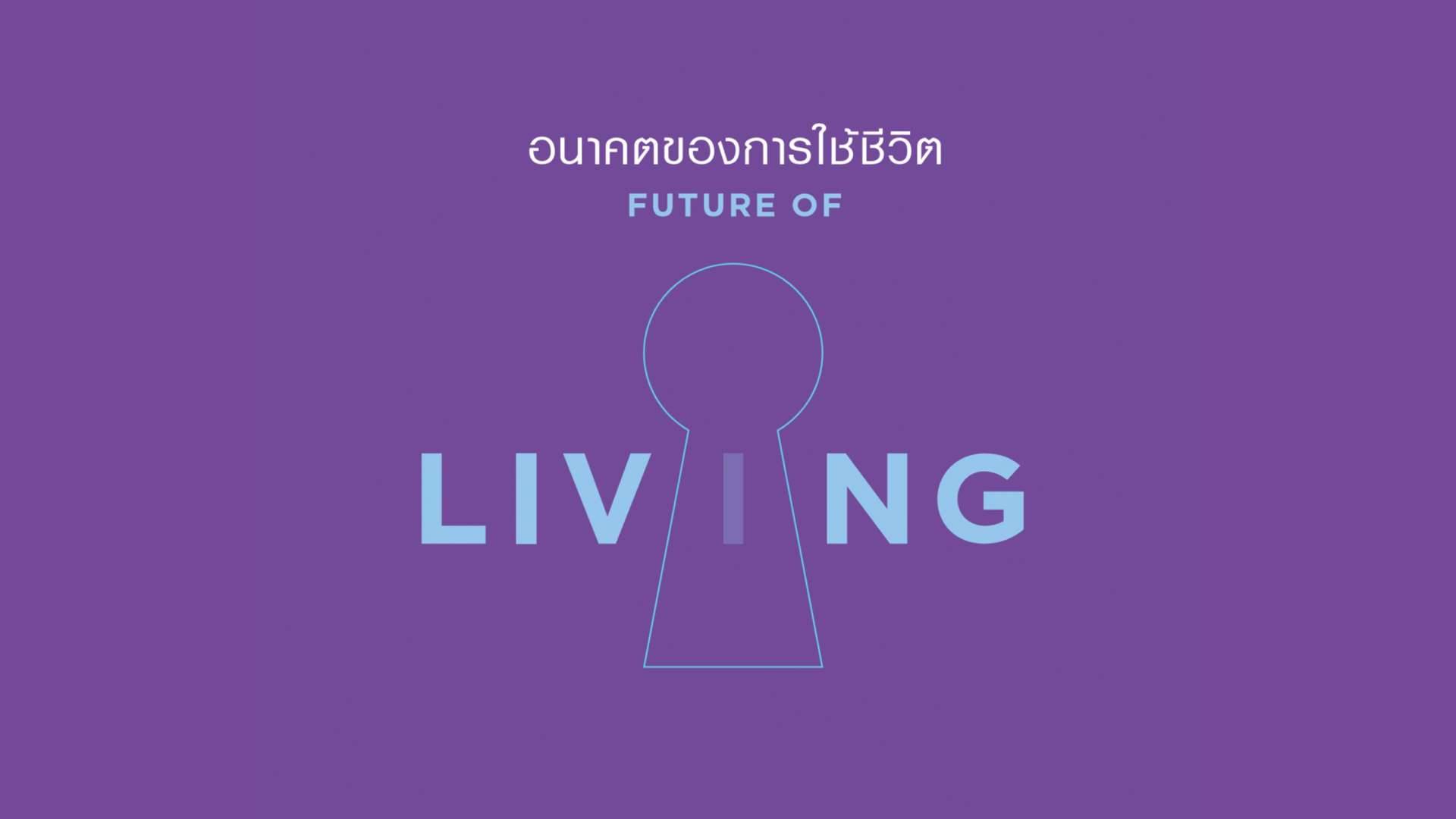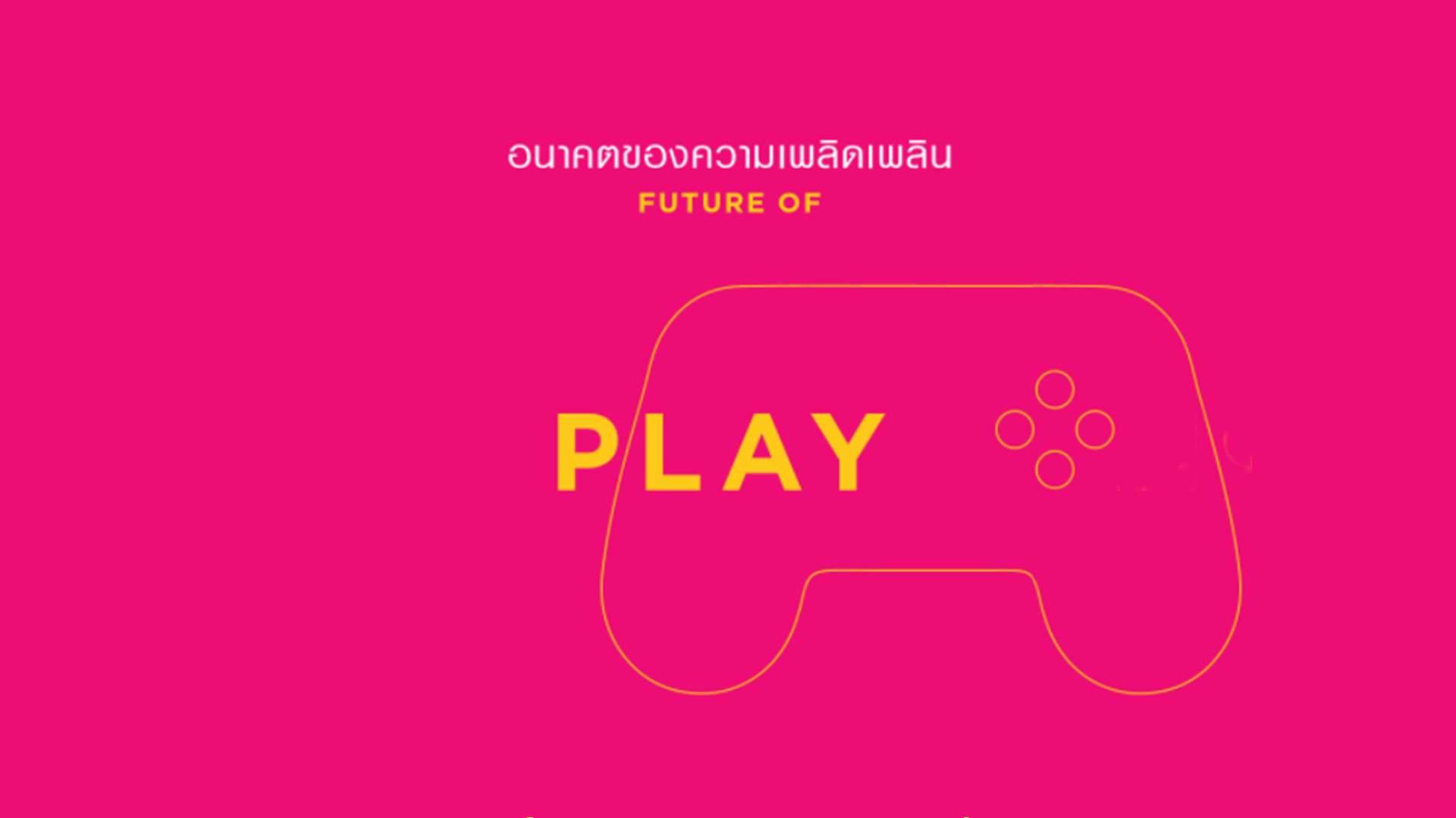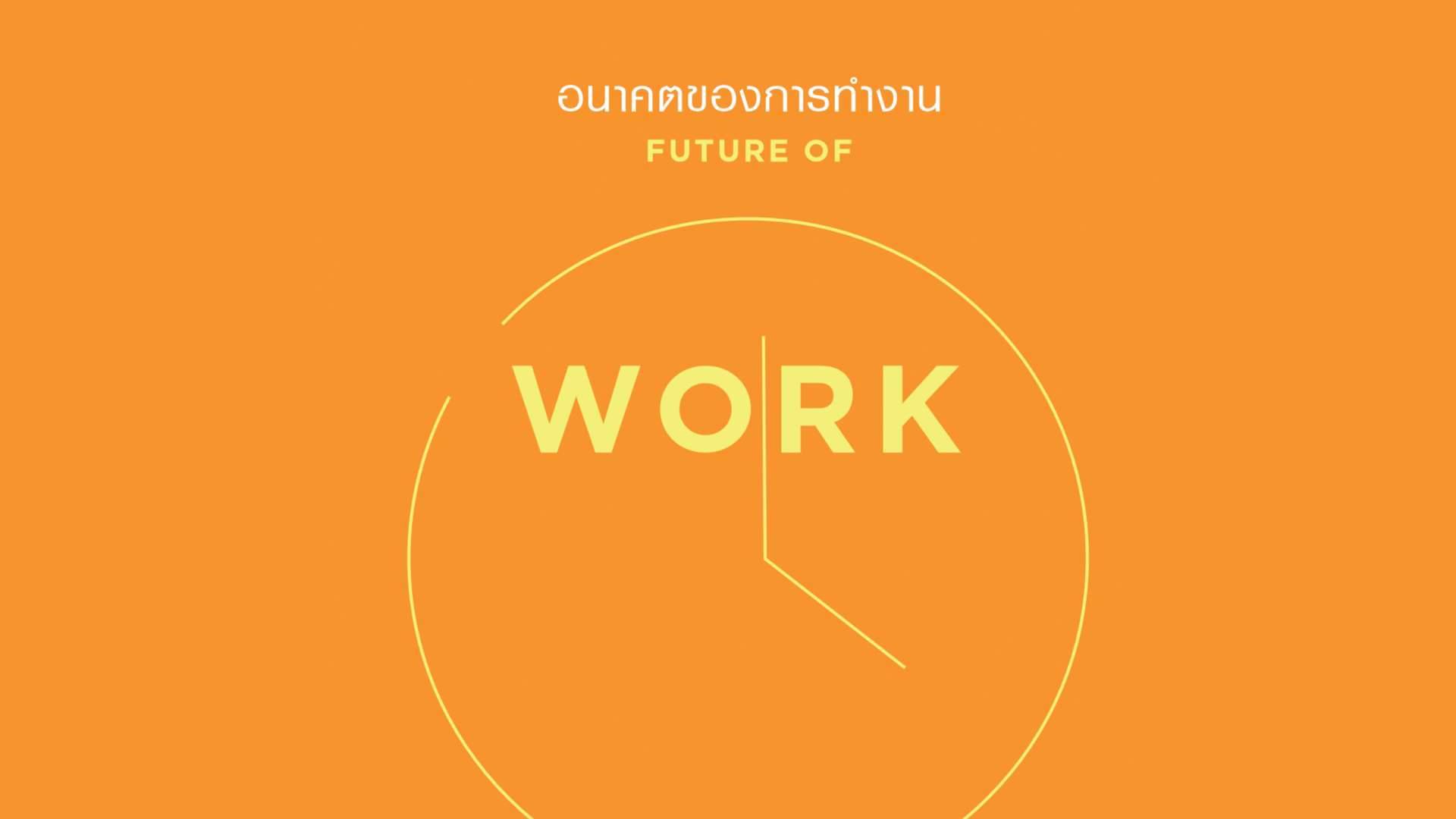Future of Urbanisation Scenarios
RESEARCH | Sep 30, 2021
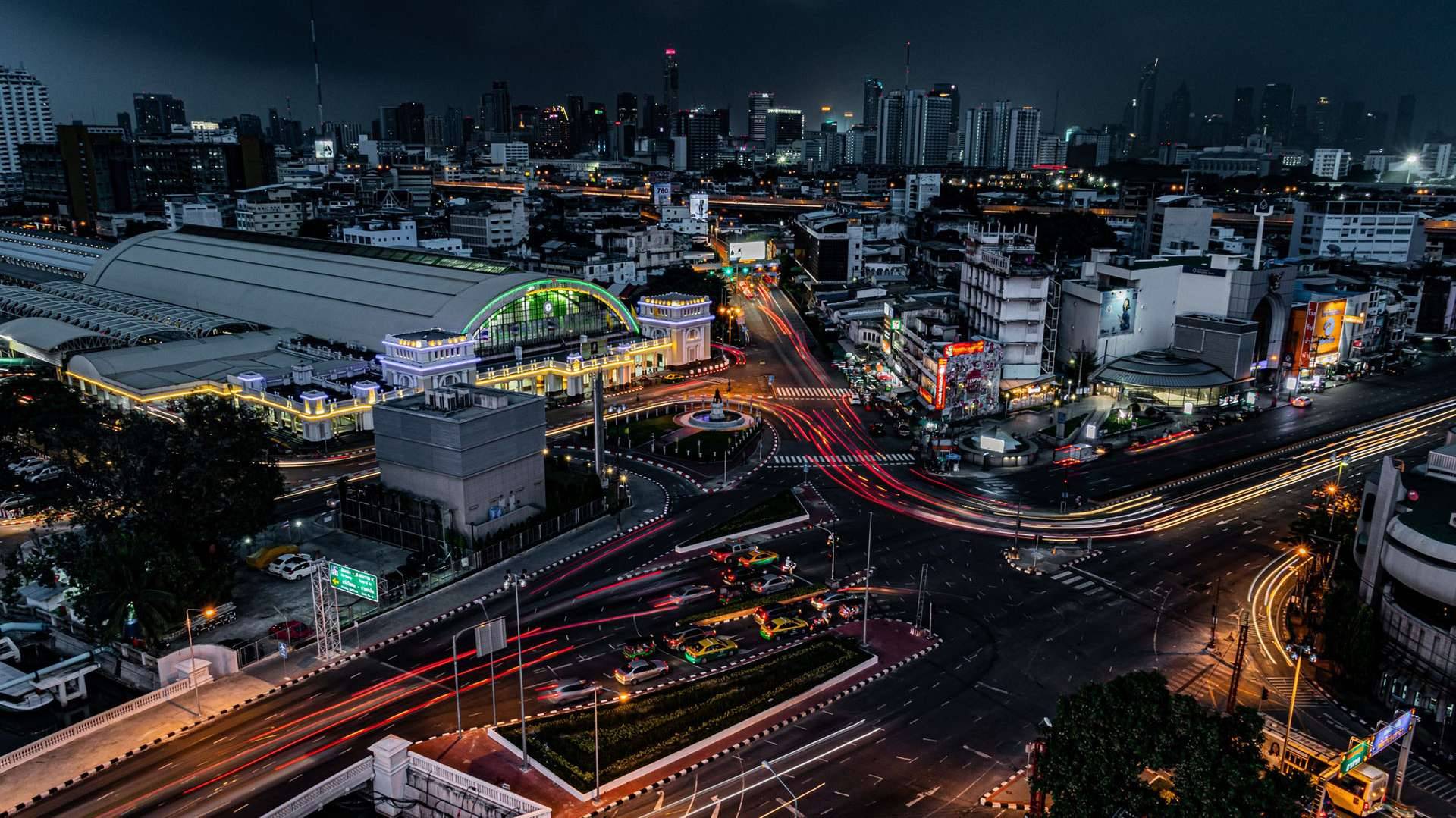
Greater Bangkok has dramatically transformed since 2021. The great megacity is a wondrous place for people to live, work, play and learn. Buildings and infrastructure have evolved to meet the challenges that climate change has brought. The world is now highly urbanised and has changed a lot. Some countries have fared better than other: some due to their geographic location but, generally, those which have thrived were proactive in adopting the United Nations’ Sustainable Development Goals and had strong economic and environmental resilience policies and plans.
Arup’s Foresight team has collaborated with FutureTales LAB by MQDC to explore what greater Bangkok will look like in 2050. The report explores the impact of rapid urbanisation and implications for planning and development through five divergent scenarios. Download the scenarios report
The process commenced with a horizon scan of trends and weak signals shaping the future of urbanisation. Download the trend cards.
High impact trends were synthesised into seven megatrends, or powerful forces, for change arising from the combined influence of multiple trends. Download the megatrends report.
The five divergent scenarios present plausible futures which are created through a series of possible events. We encourage you to use these scenarios to expand your thinking about the future. Are these unexpected consequences? What opportunities can we see? How can we maximise these opportunities?
”
Technotopia
Top-down governance and high-tech solutions prove effective in tackling climate change and the economic crisis.
Key factors shaping technotopia:
- Automation ranking
- Regional transport
- Community engagement
Watch Video : https://youtu.be/vqQtNI9cLt0
Urban playgrounds
Tactical urbanism promoting health and physical activity has given rise to an unplanned patchwork of green neighbourhoods and play equipment for all ages.
Key factors shaping urban playgrounds:
- Population health
- Environmental policy
- Skilled migration
Watch Video : https://youtu.be/JfmahalZjPg
Decentralised resilience
Many Bangkok people now happily live in planned sustainable communities on higher ground, but old flooded districts are still home to those who could not afford the move.
Key factors shaping decentralised resilience:
- Climate resilience
- Regional transport
- Urban equity
Watch Video : https://youtu.be/jcT3ctqep7M
Accelerated generations
The elderly have re-engaged in society, leveraging years of expertise to create a globally famous startup region where urban and economic development align with traditional Thai values.
Key factors shaping accelerated generations:
- Education and skills
- Community engagement
- Automation ranking
Watch Video : https://youtu.be/7HUTqHdLjnE
Transforming lifestyles
The top destination for global travellers seeking long-stay health retreats, mind-bodyspirit balance, eco-tourism or retraining for the jobs of the future.
Key factors shaping transforming lifestyles:
- Tourism
- Environmental policy
- Skilled migration
Watch Video : https://youtu.be/oWz2FPqwi4M
As humankind confronts growing social and environmental challenges, many of these solutions must come from cities. Cities are where these challenges are most acute, but they are also where we can achieve the most dramatic improvements.
As humankind confronts growing social and environmental challenges, many of these solutions must come from cities. Cities are where these challenges are most acute, but they are also where we can achieve the most dramatic improvements.
”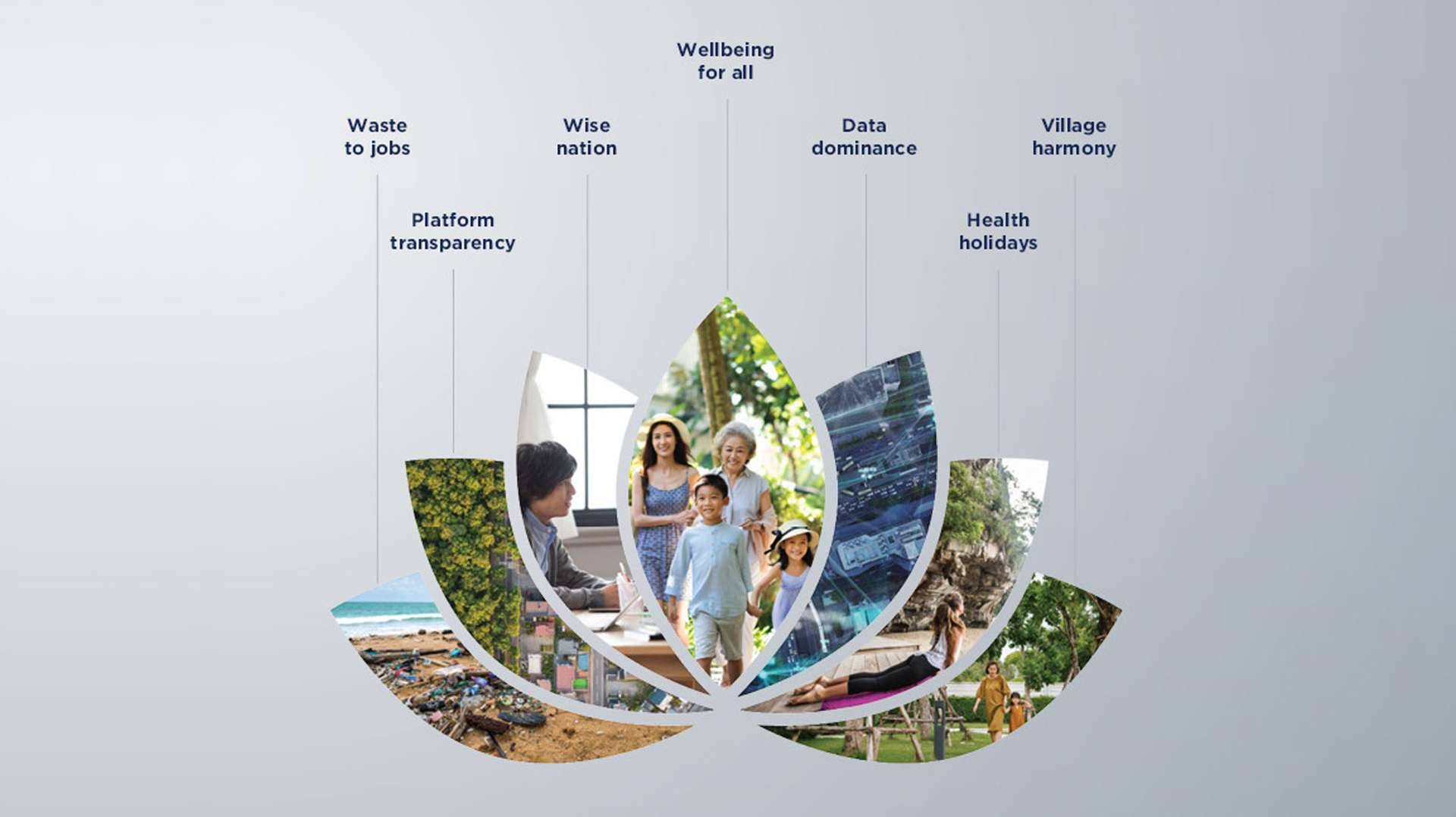
Megatrends are powerful forces for change occurring at the intersection of high impact trends. Megatrends have global scale and build up over long periods of time.
Megatrends shaping the future of urbanisation:
- Waste to jobs
- Platform transparency
- Wise nation
- Wellbeing for all
- Data dominance
- Health holidays
- Village harmony
